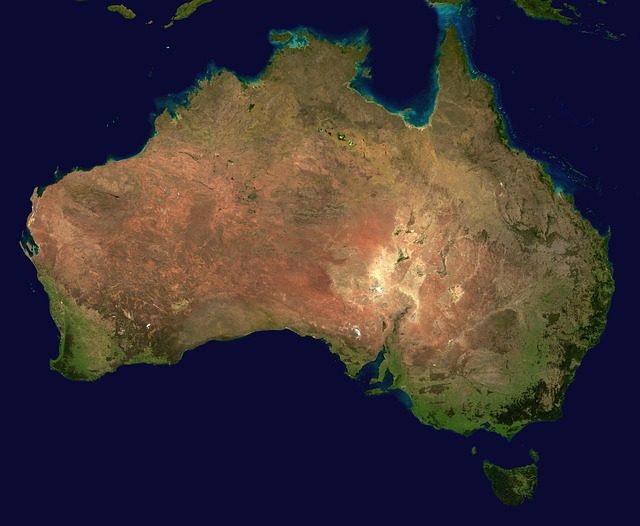The Federal Health Minister Greg Hunt is pushing the Department of Health to work with Australia’s Border Force on a new approach to e-cigarettes. The importation of vape liquid containing nicotine will be banned as of July 1st, and anyone caught violating this regulation will be fined $220,000.
In response to this measure, Senator Matthew Canavan and George Christensen MP, have launched an open revolt against Health Minister Greg Hunt and the Therapeutic Goods Administration (TGA) for their attack on the 500,000 Australian vapers. They have started a petition to overturn the import ban on nicotine vape liquid and to instead have it legalised and regulated.
Sign the petition
Legalise Vaping Australia has spoken up in support of this petition and the MPs fight. “The TGA under Health Minister Greg Hunt’s direction has effectively banned nicotine vaping without the oversight or knowledge of parliament. Now members of parliament are hitting back and they are calling Quiet Australians to join them. This is how Australian democracy is meant to function, not through ministerial decree,” said Legalise Vaping Policy Director, Emilie Dye.
“Senator Canavan and George Christensen are working to save the lives of thousands of Australians who depend on vaping as they work to achieve a healthy smoke-free lifestyle.”
“While a revolt of this magnitude against a health minister has never happened before, these MPs are not standing alone. Every other OECD nation, with the exception of Turkey, has legalised vaping. The UK has even started opening vape shops in hospitals to assist smokers trying to quit,” added Dye.
“These MPs, unlike Greg Hunt, fight on the side of science and the health of the Australian people. Here at Legalise Vaping Australia, we have received correspondence from vapers threatening to kill themselves should the TGA import ban go forward as planned on 1 July 2020. This is so much more than merely a policy debate.’’
Legalise Vaping Australia is calling on Australians who have tobacco harm reduction at heart, to join Senator Canavan and George Christensen MP in their fight and sign their petition to reguluate vaping.
Press Release by CAPHRA
Meanwhile, the Coalition of Asia Pacific Tobacco Harm Reduction Advocates (CAPHRA) has also spoken up against the cruel ban and has circulated the following press release:
“An Asia-Pacific coalition of tobacco harm reduction advocates has protested the ban imposed by the Australian Therapeutic Goods Administration (TGA) on the importation of nicotine liquids, saying this will deprive millions of Australian vapers and existing smokers of their rights to access better alternatives to combustible cigarettes.
The Coalition of Asia Pacific Tobacco Harm Reduction Advocates (CAPHRA) said the ban on importation of vaping products for personal use into Australia effective 1 July means that cigarette smokers looking for safer alternatives will no longer be able to import these products for their own personal use.
The ban will cover e-cigarettes containing vaporizer nicotine (nicotine liquids and salts) and nicotine-containing refills. Only doctors or medical suppliers will be allowed to import these products as long as they have a permit from the Health Department.
According to the new regulatory framework, vapers will have to visit a general practitioner, get a prescription, and then obtain their vaping liquids from an approved medical dispensary.
“Smokers in Australia have been denied access to a proven harm reduction tool and vapers in Australia have yet again been dealt a potentially fatal blow which will see many of the 300,000 strong vaping community go back to smoking cigarettes,” CAPHRA Executive Coordinator Nancy Loucas said in a statement.
CAPHRA said the use of e-cigarettes, heat-not-burn tobacco products and other electronic nicotine delivery systems are considered a part of tobacco harm reduction—a public health strategy that aims to provide alternatives to reduce risks caused by smoking cigarettes.
Loucas said the ban will only exacerbate the smoking problem which kills 21,000 Australians a year as this will discourage them from switching to better alternatives.
Scientific studies have shown that e-cigarettes are 95-percent less harmful than combustible tobacco because they do not involve combustion. It has been known for decades that tar, and carcinogens found in tobacco smoke, cause the death and disease associated with smoking, and not nicotine. Unlike combustible cigarettes, THR products do not produce smoke as they deliver nicotine by heating, and not burning tobacco.
Loucas said the decision by TGA led by Health Minister Greg Hunt is a direct assault on the rights of vapers and smokers who are now being forced to keep smoking in the absence of better alternatives.
“How much more can the people take when their human right to choose health is up for sale by those who only see the need to keep collecting the tobacco excise to bolster their coffers? Moreover, how could anyone in a public health role find this type of announcement and activity to be in the best interests of public health defies logic?” she said.
The ban also drew protest from the Australian Tobacco Harm Reduction Association (ATHRA), the Progressive Public Health Alliance (PPHA), Aotearoa Vape Community Advocacy (AVCA) and Legalise Vaping Australia (LVA).
“CAPHRA stands in support of ATHRA, PPHA, AVA and LVA in denouncing the announcement by the Australian Therapeutic Goods Administration (TGA) of a crackdown on those importing vaping products for personal use into the country, with or without a prescription. From July 1, Border force will be stepping up enforcement activities and targeting vapers,” said Loucas.
Loucas said she agrees with Brian Marlow of LVA who said that the new policy “will drive up the medicare costs and screw over regional and rural smokers and vapers who aren’t able to see a doctor as easily as these inner-city policymakers can. Smoking rates in rural and regional areas are already through the roof, this will only make matters worse.”
“Given the weight of overwhelming evidence in relation to the less harmful nature of vaping products, the only logical thing to do is appropriately legislate these products as a consumer good with all of the relevant protections that come with that. The current regulations to take effect in July are absolutely abysmal,” Marlow said.
Loucas said the crackdown will also affect vapers who enter Australia for work or holiday, as it will be presumed that any vape liquid will contain nicotine and therefore is a medicine that requires a prescription. “In effect, this is a total ban on e-liquid vaping in the entire country of Australia,” she said.
She said the Australian ban, in general, will have implications in neighboring New Zealand which prepares to legalize vaping or the use of electronic cigarettes.
“It is astonishing that Health Minister Greg Hunt, et.al, would go on a witch-hunt of this magnitude knowing fully well that across the Tasman, New Zealand is gearing up to legalize vaping and provide risk proportionate regulatory frameworks and guidelines for consumer access and availability to assist the thousands of smokers in Aotearoa/New Zealand,” said Loucas, who is also one of the co-founders and co-directors of AVCA, the vaping consumer advocacy organization in New Zealand.
CAPHRA has encouraged other organizations and affiliated consumer tobacco harm reduction advocates and experts to support consumer groups in Australia in their quest to push for tobacco harm reduction, instead of a ban, as the more reasonable government policy to address the problem of smoking.”












